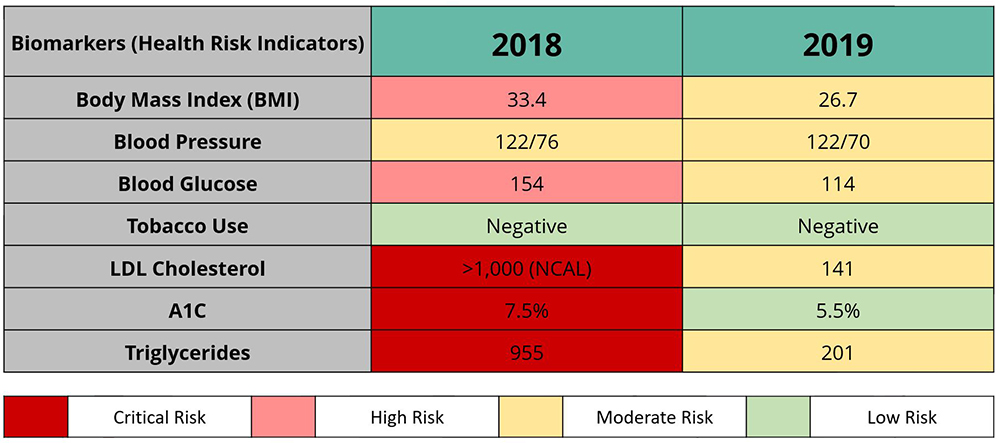Employee healthcare is a key component of sustainable businesses. But do employers understand the distractions that have created a destructive cycle for health and medical expenses?
Fixating on provider discounts and cost negotiations is no longer a useful value proposition for employers looking to lower their group healthcare expenses. Nevertheless, new solutions are emerging to meet the needs of organizations of all sizes.
Employers are acknowledging that the only way to reverse the trend of rising healthcare expenses is to focus on strategies that eradicate the root cause of the costs.
Doug Short, CEO of BeniComp Health Solutions, has been a leader in the health insurance industry for over 38 years. His mission is to restructure the way healthcare (a $3.65 trillion industry) operates in order to reward individuals and organizations for good health rather than perpetuating the penalty of increasing plan costs each year.
"We have said repeatedly that history repeats itself... because we don't learn from it. [Jane Fulton] has the famous phrase that the definition of insanity is doing the same thing over and over and expecting a different result. Essentially, that's what health insurance has been. It's just a funding method, it’s just a financing system. It just funds the losses. It doesn't predict them or prevent them. It doesn’t suppress the appetite for them... We continue to look at that system and say, 'We’ve got to fix it."-- Doug Short, CEO
The pitfalls of the traditional system’s approach is evident. Prediction and prevention strategies are a solution to an inefficient system that has been desperately trying to evolve and find sustainability.
Empowering your employees is the greatest, long-term value your health plan can have.
"If you change the mindset at the employee level… I am only asking that one person to improve that one person... But I am doing that with the next employee and the next employee - all the employees. So that inside that group there are hundreds of people that are actively working to improve something." -- Doug Short
Predictive and preventive strategies are able to effectively help individuals:
- Alleviate health risks.
- Reverse chronic conditions.
- Reduce the need for pharmaceuticals and medical treatments.
- Improve productivity and presenteeism.
- Lower overall healthcare costs.
Cause of the Costs: A Preventive Health Management Case Study
Chronic conditions (such as high BMI, high blood pressure, high cholesterol, high glucose (blood sugar), heart disease, and diabetes) are highly preventable, and yet they account for 75% of healthcare expenditures.
In case studies with employer-sponsored predictive & preventive health strategies, employees successfully improved their health conditions. In one year, the individual represented below brought their biomarkers down from critical risk into a normal - moderate range and avoided serious health events and resulting medical expenses.

*Case study was from an employee who participated in IncentiCare, an employer-sponsored health insurance plan from 2018 - 2019.
This participant was found to be an unmanaged diabetic without any awareness of their condition. The combination of high LDL cholesterol, high triglycerides, and high blood sugar put the participant at critical risk for heart attack and stroke.
The financial impact of prevention and risk reversal on company healthcare plans is substantial and immediate. Due to the lack of awareness, this employee was on a fast track to a heart attack (avg $185,000) and could have easily been on prescription medications for diabetes (avg $13,700/year) and cholesterol (avg $2,272/year) for life.
In addition to eliminating healthcare costs, these strategies help improve quality of life and cultivate a culture of productivity for a company to thrive.
What is the cost of an avoided medical claim?
"The previous world constantly tried to lower what a claim costs. But what is the cost of a claim that has been avoided? $0.00-- it has been avoided. You can't cost or price lower [pharmacy/medical costs] to the same point that I can when I can avoid the claim. Moreover, if I can avoid the claim by modifying a lifestyle, by helping you, coaching you, encouraging you, giving you the Durable Medical Equipment (DME) that helps you get yourself to the best you can be."-- Doug Short
There is enormous untapped potential for employers to control the unruly cost of group healthcare. Measurable value results from focusing above and beyond the bills, cost negotiations, and provider discounts. Employers can take control by implementing effective strategies that are proven to result in large-scale health improvements.
Solutions that involve prediction, prevention, and reversal of health risks defy historical trends by creating sustainability in healthcare plans.
Please share to continue the conversation on how employers can find true value and ROI in their group health plans.


